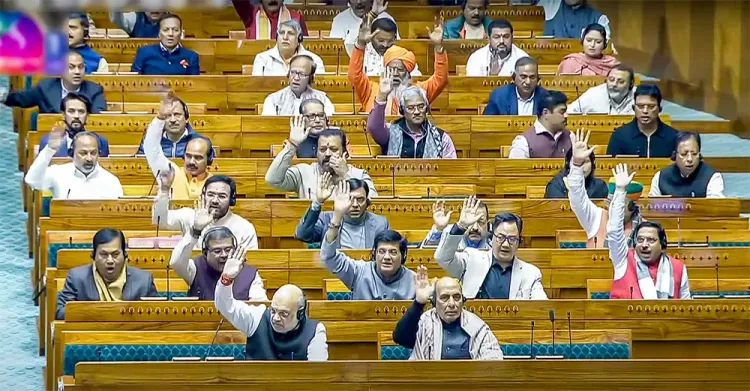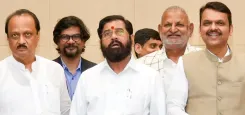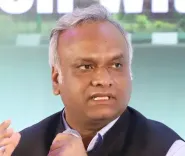Historic Milestone: 369 MPs Engage in Electronic Voting for ONOE Bill in Lok Sabha, Opposition's Critique Lacks Impact

New Delhi, Dec 17 (NationPress) The 129th Constitution Amendment Bill, commonly known as the ‘One Nation, One Election’ (ONOE) Bill, was successfully presented in the Lok Sabha on Tuesday, garnering support from 263 Members of Parliament (MPs) while 198 voted against it.
The objective of the bill is to align national and state elections throughout India, leading to heated discussions, especially among opposition factions.
Union Law Minister Arjun Ram Meghwal introduced the bill, marking a significant historical event as this was the first instance of utilizing automatic vote recording machines in the new Lok Sabha chamber. A total of 369 MPs registered their votes electronically, while 92 votes were cast via paper slips. Among the paper votes, 43 were in favour of the bill, while 49 were against it.
Despite the majority backing the motion, the voting process itself became contentious. Congress MP Gaurav Gogoi raised alarms about a technical malfunction during electronic voting. In a statement on X, Gogoi criticized the electronic voting failure and highlighted that the paper votes reflected an accurate count. Nevertheless, parliamentary data contradicted Gogoi's assertions, confirming 263 votes in favour and 198 against, leading to the bill's successful passage.
Although the electronic voting method experienced some initial challenges, it remained the primary mode for MPs to cast their votes.
The bill has polarized political parties, with the ruling BJP and its allies in support, while opposition factions have staunchly opposed the legislation.
The TDP, an essential ally of the BJP, showed robust support for the ONOE Bill, claiming it would alleviate India's financial strain and decrease electoral expenses by over 40 percent.
Conversely, opposition parties, including the Trinamool Congress, Samajwadi Party, Shiv Sena (UBT), AIMIM, and the Congress, voiced intense disapproval of the bill. They criticized the legislation as an infringement on the Constitution and a direct threat to India's democratic fabric.
AIMIM chief Asaduddin Owaisi contended that the bill aimed to undermine regional parties and centralize power, describing it as a move towards authoritarianism and dictatorship.
Union Home Minister Amit Shah rejected these criticisms, accusing the Congress party of routinely opposing progressive reforms. He defended the ONOE Bill as a vital reform to streamline elections and cut electoral expenses in the nation.







